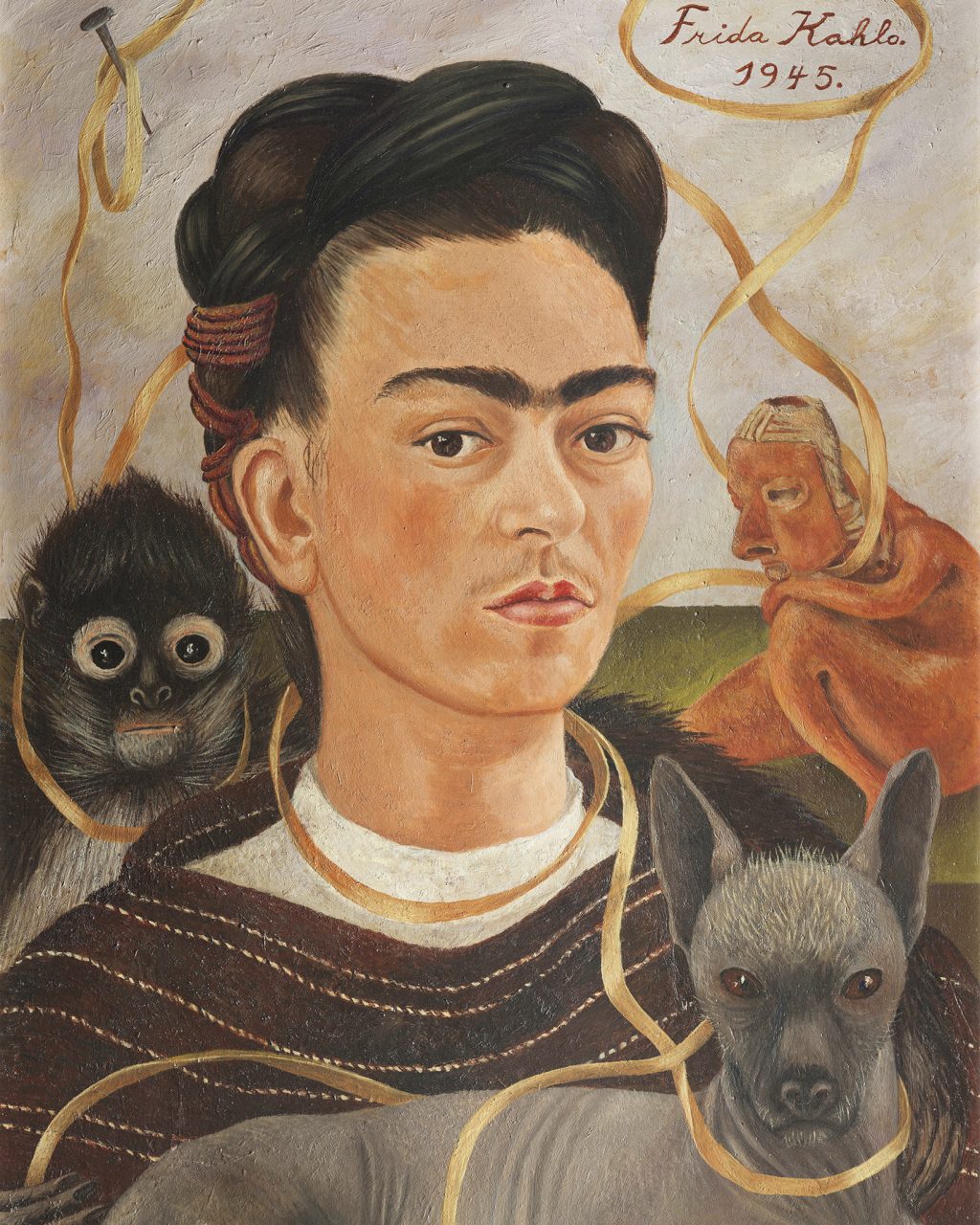
 Highly Recommended ***** “Frida Kahlo – Timeless: Works on Loan from the Olmedo Museum” is more than just an art exhibition: it is a gem. It tells the story of a woman’s tragic life and how it impacted her creative vision. Now being featured at the Cleve Carney Museum of Art, in the McAninch Arts Center (MAC) on the College of DuPage campus, 26 of Kahlo’s most remarkable paintings are supplemented by family photographs, video tributes to her life and times, and artists’ statements and background information that puts her work into context. There is even a miniature of the Blue House where she once lived in Coyoacán, Mexico City, with her husband the artist/muralist Diego Rivera.
Highly Recommended ***** “Frida Kahlo – Timeless: Works on Loan from the Olmedo Museum” is more than just an art exhibition: it is a gem. It tells the story of a woman’s tragic life and how it impacted her creative vision. Now being featured at the Cleve Carney Museum of Art, in the McAninch Arts Center (MAC) on the College of DuPage campus, 26 of Kahlo’s most remarkable paintings are supplemented by family photographs, video tributes to her life and times, and artists’ statements and background information that puts her work into context. There is even a miniature of the Blue House where she once lived in Coyoacán, Mexico City, with her husband the artist/muralist Diego Rivera.
Mestiza in thought and countenance, Kahlo always sought to promote an authentic expression of the indigenous peoples of Mexico in her politics and her art. She infused social and political consciousness into her craft and empathized with the struggles of the peasants, workers, and downtrodden who had succeeded in overthrowing the dictatorship of Porfirio Díaz during the Mexican Revolution of 1910. But perhaps the most important influence on her life was the sheer amount of suffering she had undergone through serious illness, major debility, and terrible disfigurement. At age 18, she was severely injured in a horrific bus accident. With a shattered back and pelvis, Kahlo was confined to her bed, where, at her mother’s encouragement, she learned to paint flat on her back with her canvas (and often a mirror) suspended above her. This was meant to be therapeutic but it opened up an entirely new world to her: that of the artistic pursuit, which provided her with her life’s direction.
Kahlo’s paintings and drawings create an intimacy with her viewers: The ones dealing with health, illness, mental health, and disability lay bare portions of herself that most people would prefer to hide or put behind them, such as the effects of her rocky relationship with Rivera and her three miscarriages. While the burden of pain did not take control over Kahlo’s life, it influenced her at every turn. The stark contrast of the artist’s vitality and vulnerability is made manifest throughout the exhibition, which is the most comprehensive display of Kahlo’s paintings in the U.S.A. in 40 years.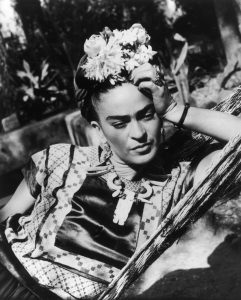
Two of her most famous works have a very prominent place in the main gallery: “The Broken Column” (1944), is a reference to her physical pain and to the back brace she constantly had to wear. “Self-Portrait with Small Monkey” (1945) features her trademark clay figurine and her beloved Mexican hairless dog, which are a nod to elemental parts of her soul.
In an adjacent room called the “Tres Fridas”, we see the influence of Kahlo on the work of other artists with disabilities. This related exhibit is a series of imitations of famous masterpieces, where disabled people take the place of the original models. To better understand this, the viewer needs to know that it is a takeoff on her painting “Las Dos Fridas” (1939), which shows two versions of the artist sitting side by side with both of their hearts exposed. One side is the emotionally-wounded Frida, wearing a white shroud-like dress, and the other is the persona that she presents to the world, where her colorful indigenous Tehuana clothing hides her emotions and her ever-present back brace. In addition to displaying the brace and a replica of her small bed, the gallery features several unique outfits which she once wore. Kahlo was particularly fond of Huipil blouses and ruffled skirts that would mask her deformities and make her pain seem invisible, or at least subdued and bearable.
Considered one of the most important painters of the 20th century, Kahlo brought feminism, sexual liberation, bisexuality, and women’s empowerment to the fore at a time when all of this was considered highly controversial. She was an inspiration to other artists with disabilities. But first and foremost, the presentation has us asking ourselves, “How much misery can one person endure and not only persist but shine?”
“Frida Kahlo – Timeless: Works on Loan from the Olmedo Museum” is being presented by the Cleve Carney Museum of Art and the McAninch Arts Center (MAC) on the College of DuPage campus, and will be open to the public from June 5 through September 6, 2021.
Located at 425 Fawell Blvd, Glen Ellyn, IL 60137, the MAC is located on the northeast end of campus.
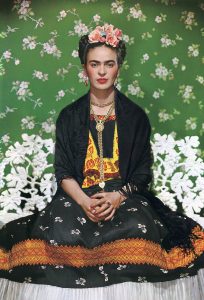 Parking on campus is free and ample. Park directly in front of the MAC – lot Fawell A.
Parking on campus is free and ample. Park directly in front of the MAC – lot Fawell A.
Entrance to the exhibit is only accessible through the MAC front doors.
Hours are:
M: 10:00 a.m.-6:00 p.m.
T: 10:00 a.m.-6:00 p.m.
W: 10:00 a.m.-6:00 p.m.
Th: 10:00 a.m.-10:00 p.m.
F: 10:00 a.m.-6:00p.m.
Sa: 10:00 a.m.-6:00 p.m.
Su: 10:00 a.m.-6:00 p.m.
Note that the exhibit is child-friendly: There are special activities for children in a special children’s area. And don’t forget to check out the garden. Be sure to check out both areas even if you’re not a child!
There are three options to purchase tickets: by visiting https://theccma.org/frida-kahlo, phoning the box office at 630-942-4000, or showing up in person:
McAninch Arts Center Box Office
425 Fawell Blvd
Glen Ellyn, IL 60137
Timed Tickets are $23* and are for a specific time and date.
Untimed Tickets are $40* and are for a specific date only.
*Ticket prices exclude handling fees.
For Timed Tickets, your reservation is for entry into the exhibition. Please arrive ten to fifteen minutes early if building hours allow.
For Untimed Tickets, the last entry time is 5:00 p.m. on Mondays-Wednesdays and Fridays-Sundays, and 9:00 p.m. on Thursdays.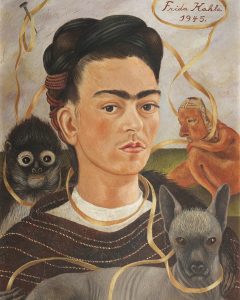
There is no discount available for groups to “Frida Kahlo: Timeless”, however if you are interested in bringing a group of 10 or more, please visit theccma.org/group-information.
All tickets are non-refundable. Tickets can be exchanged one time only up to 72 hours prior to date for a $5 exchange fee per ticket by calling the Box Office at 630-942-4000.
Children ages 3 and under do not require a ticket and must be carried throughout the Main Gallery. Soft-sided front-wearing carrier must wrap around the adult and must not be wrapped/strapped to the back.
COVID-19 precautions are in effect!
Everyone must wear a mask that covers both the nose and mouth. If for some reason you are not willing or able to wear a mask, please don’t plan to attend.
All attendees will be ticketed in 15-minute increments to ensure no more than 50 people are in the space at the time.
There will be temperature scanners at the entrance.
Tickets will be touchless and digital programs will be made available.
There are 6-feet social distancing markers.
The exhibition is designed for one-way traffic.
Hand-sanitizing stations are at the doors.
Lucite barriers have been installed at the box office.
There are no concessions available**, and food and drink are not permitted.
There is no coatroom, and bags larger than 13” x 17” x 4” are not allowed inside.
**Note there are two well-stocked gift shops in the exhibit.
For general information about the show, please go to the website: https://theccma.org/frida-kahlo.
Make a day of your adventure! While you’re in that part of the world, check out the Cosley Zoo, in Wheaton, at the corner of 1356 N. Gary Avenue (at Jewell Road). Five acres of native Illinois animals. Open each day from 9:00 a.m.-5:00 p.m., seven days a week. Admission is $8 per person plus a $2 processing fee; free for Wheaton residents with ID.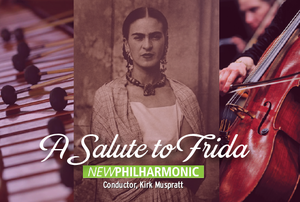


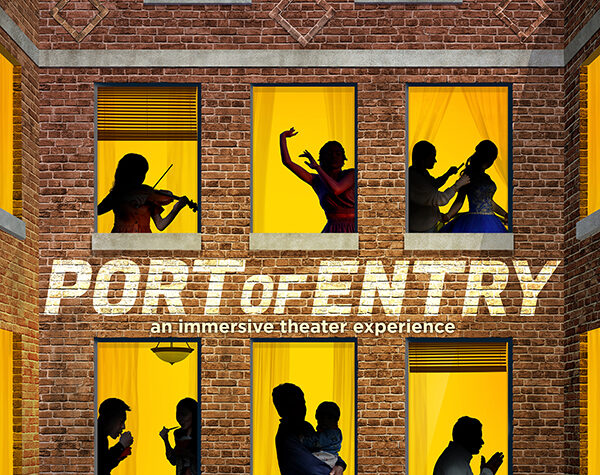

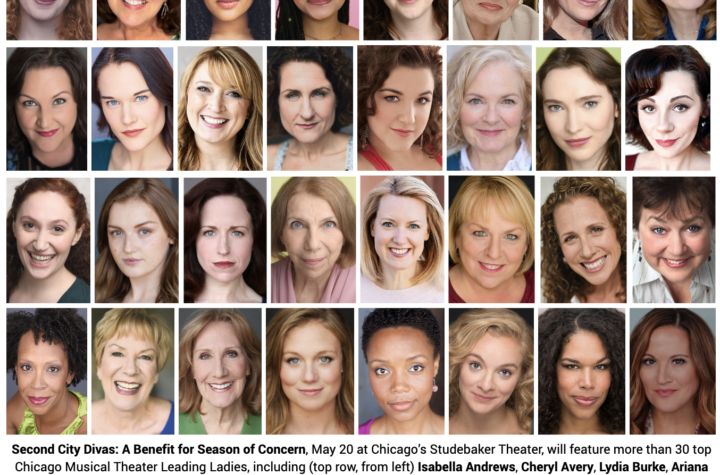
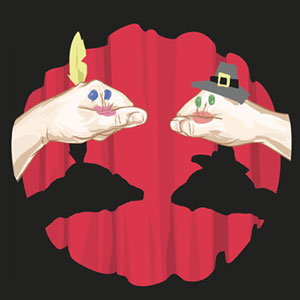
More Stories
“The Prom” at Glenbrook High School
“The Simon & Garfunkel Story” comes to Chicago
Passover Dinner at Frank’s ( Italian style)